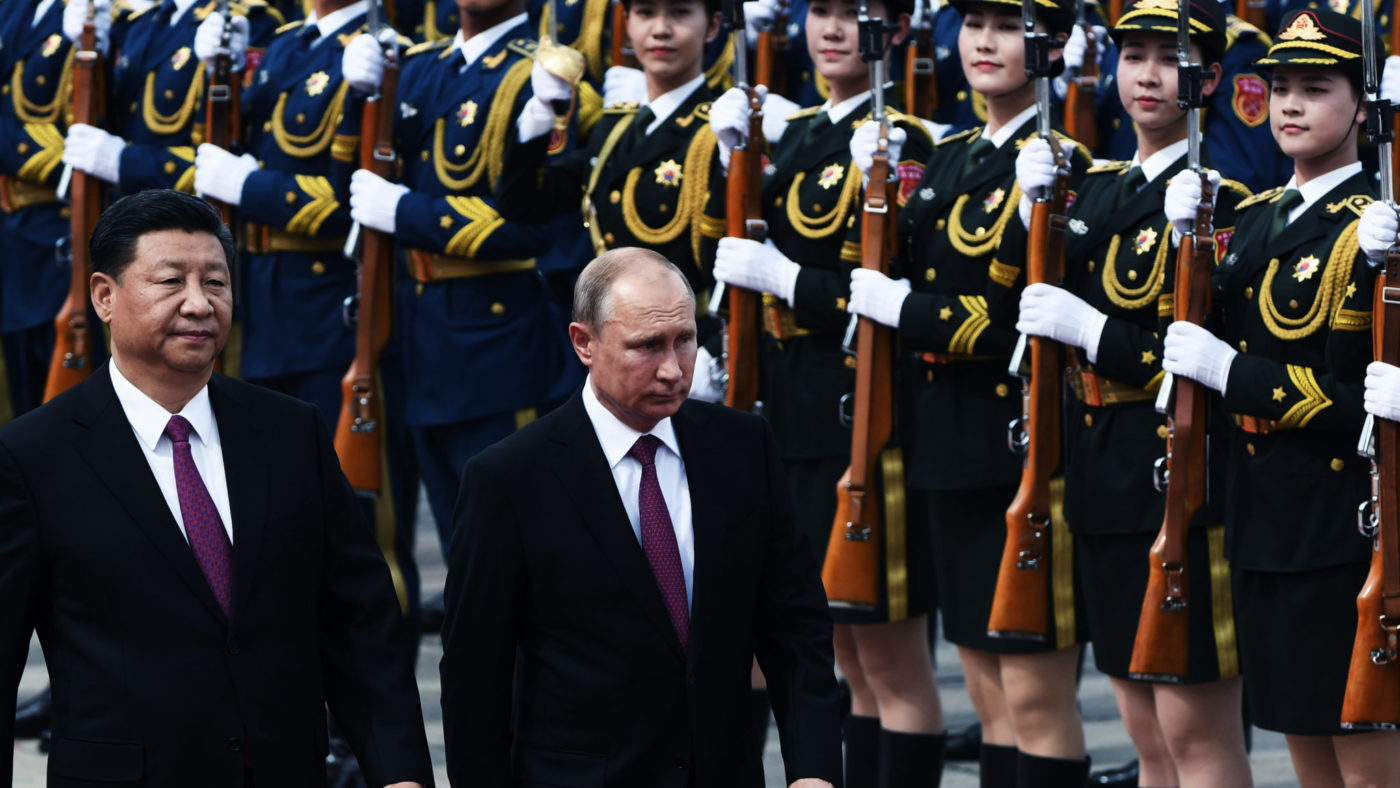Few things alarm Western capitals quite as much as Russia conducting large-scale military exercises. And Russia’s Vostok exercise, which begins tomorrow in eastern Russia, is certain to cause alarm – involving 300,000 military personnel and 36,000 tanks, it will be the biggest display of the country’s military might since the end of the Soviet Union.
Though much is known about the exercise, the ostensible scenario is not. Sergey Shoigu, Russia’s Defence Minister, has, however, compared it to the Zapad exercise in 1981. Back then, between 100,000 and 150,000 Soviet and Warsaw Pact troops rehearsed an offensive against NATO – and reminded the captive states of Central and Eastern Europe of the threat that Moscow posed to their existence.
With this week’s Vostok exercise, Russia aims to create unease and concern in the West, demonstrate the warming of its previously cold relationship with China, and feed Vladimir Putin’s domestic popularity. But however the exercise goes, the Kremlin has already won on another front over recent years: Russia has succeeded in shaping the Western security agenda.
Since the near-debacle of the war with Georgia in 2008, Putin has invested considerable money into modernising Russia’s military. The annexation of Crimea, invasion of eastern Ukraine, and involvement in Syria have demonstrated that Russia is now able to move large numbers of people and equipment quickly and efficiently over long distances – and do so beyond its borders. The Vostok exercise, which involves the mobilisation of almost a third of Russia’s armed forces, will demonstrate just how far the country has come in the last decade.
In the years since the West imposed sanctions in 2014, Russia has sought to pivot itself toward China. Over this period, Chinese banks and companies have invested more than $40 billion into Russian businesses, helping to prop up Russia’s stagnating economy. But the relationship is not solely based on economics. The two countries now regularly provide high-level attendance at each other’s military parades and conduct joint military exercises. Beijing’s involvement in the Vostok exercises – China plans to send 3,200 troops – is the latest example of this.
All of this plays well in Russia. Since he returned to the presidency in 2012, it has been clear that Putin has not been able to generate any degree of domestic legitimacy without high-profile foreign policy achievements. These achievements have been largely based on the rejection of the post-Cold War world order and the assertion that Russia is a ‘great power’. Domestically, as the recent large-scale protests against his proposed pension reform have demonstrated, Putin has faced a backlash against a number of unpopular initiatives. Massive military exercises are exactly what the Russian president needs.
Speaking in late August, NATO’s Acting Deputy Spokesman Dylan White said that the Vostok exercise “demonstrates Russia’s focus on exercising large-scale conflict” and fitted a pattern of a “more assertive Russia” with a larger military budget. The vulnerable frontline states of Eastern Europe are worried by this behaviour, and with good reason. In both the Georgian war of 2008 and in Ukraine in 2014, Russia’s military exercises turned into the real thing.
After years of complacency, NATO has woken up to the threat posed by Russia. There are now multinational trip-wire forces positioned in Eastern Europe in the event of a Russian attack. In Estonia, the forces are led by the British. In Latvia, the Canadians are leading, and in Lithuania it is the Germans. The US is taking the lead in Poland. They are there to prevent a Russian offensive, rather than defend against one.
Viewed from London, it is easy to dismiss concerns about Russia’s military exercises as the paranoid and reactionary talk of Cold Warriors. But, as the Vostok exercise begins, we should remember that the frontline states of Eastern Europe are vital to our own security – they do not cause problems with Russia, but instead help to abate them.


